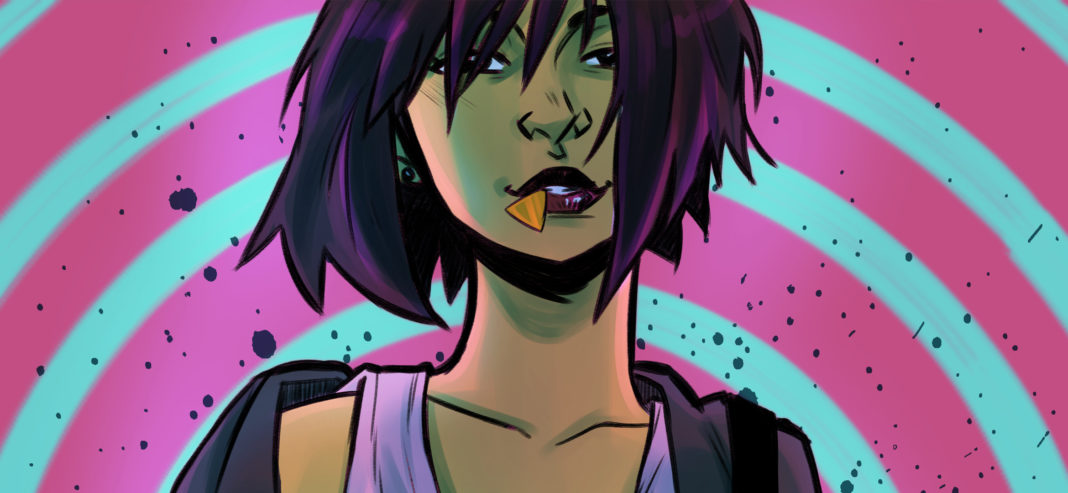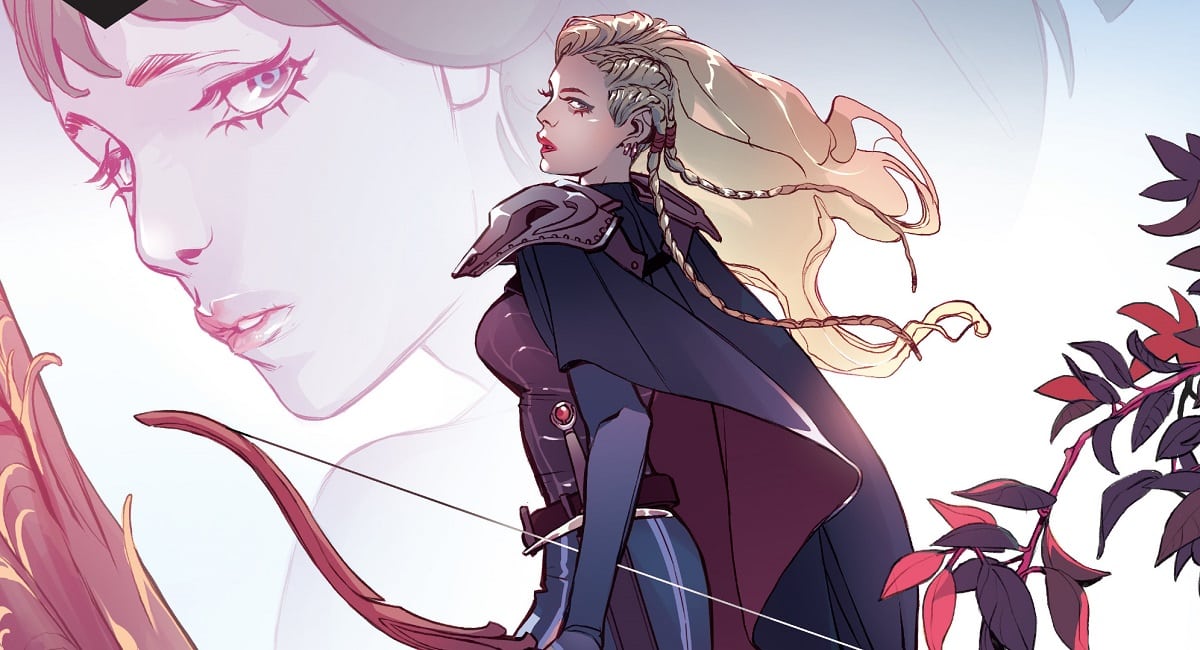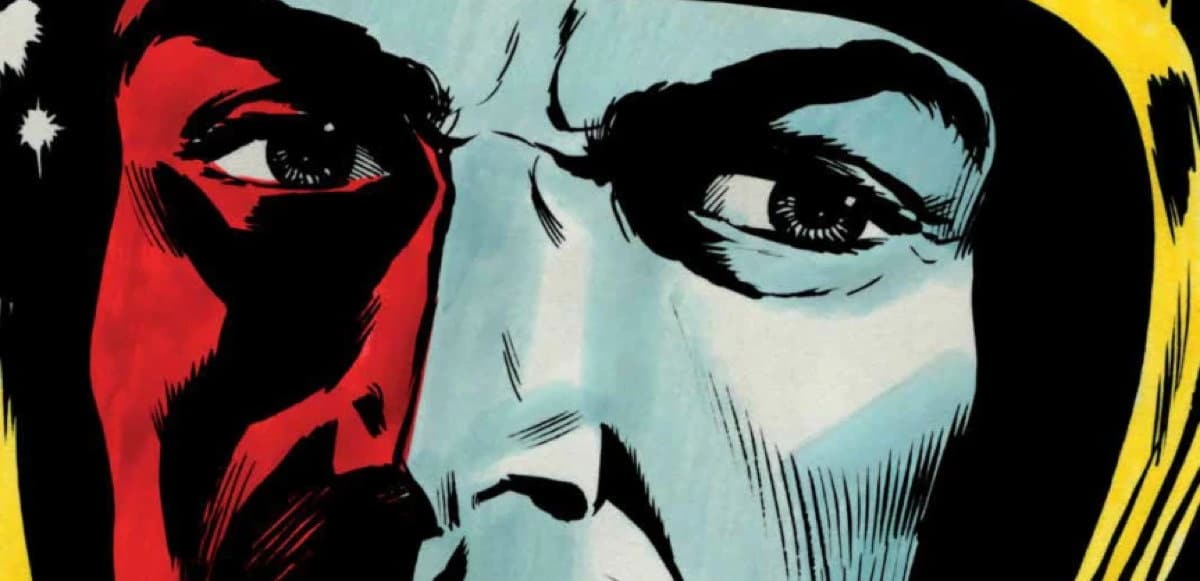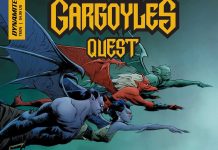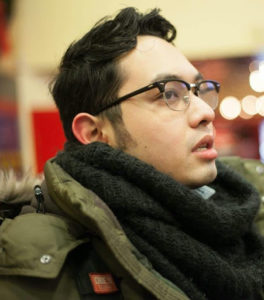
How do comics creators tell stories that are both real and human without romanticizing and idealizing struggle? Up-and-coming Filipino-American comics artist Fabian Lelay believes that an answer to this question is both complex and simple; it takes a lot of work, and it’s something you just do.
The artist of the Black Mask titles Jade Street Protection Services and We Are the Danger sat down with me for lunch at a Vietnamese restaurant in Jersey City a few Saturdays ago to chat about his work. Throughout our conversation I found myself wondering what it was like to be an Asian-American artist creating stories at a time when the comics scene is on the brink of change.
“We live in a world where we work, study, and drone on from day to day,” said Lelay. “Stories that represent ourselves show us that we can be the lead—we can be the hero. It’s important to see yourself out there in order to be your best self.”
And putting himself, and characters that look like him, out there is exactly how he’s entering onto the comics stage as a creative change-maker.
As we took turns sipping hot tea served alongside our meal, Lelay emphasized that making good stories with powerful beats means adding a truly human voice to the people that speak inside the pages of his comics. That means writing and depicting characters who live and breathe, experiencing both moments of joy and of sadness. For Lelay, it is a depiction of a character’s reality, creating a relatable, accessible person, that gives a story its power. In a current comics context in which representation of silenced voices matters more than ever, Lelay believes telling true-to-reality narratives can only benefit an evolving comics community.
Vital to this storytelling process is the invaluable role of a good editor.
“No matter how good the work is, it can always get better,” said Lelay. And with the help of his trusted friend and award-winning writer and editor Stephanie Cooke, whose accolades for books like Wayward Sisters and Osgoode As Gold make her more than fit for the job, Lelay is able to create stories that are meaningfully powerful and simply good to read.
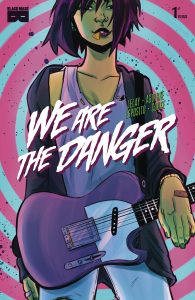
For example, Lelay’s We Are the Danger — a vibrant, youthful narrative following the story of dream-chasing Filipino immigrant Julie Malliari — bears this quality, placing its protagonist in a position any reader can empathize with: a young teenager going after her dream career. The story isn’t really about how inspiring her struggle is pursuing her goal of playing in a grandstanding rock band so much as it is a snapshot of her journey navigating personal identity and accomplishing her dreams.
And yet being Filipino is also never separate from the story at hand. It paints the book with an important hue, like the Tagalog lyrics to Julie’s song adorning a splash page in the comic’s first issue. The book represents a specific audience of readers, while also maintaining a narrative of the classic hero’s journey. In this way, Lelay’s work is doing what the industry as a whole needs to do more; it is presenting more opportunities and visibility for Filipino characters—and by extension, for everyone.
Our conversation took necessary pauses when the food arrived, and the chowing down had begun on what would be the first meal either of us ate that Saturday. In moments between mouthfuls of rice, Lelay took me back to his own origins as an artist, detailing his path before taking up the blue drafting pencil.
“I was born in Long Island, New York, originally, and moved to the Philippines when I was four,” Lelay said. “Getting an education in the arts there was a little more complicated.”
Lelay described having an initial interest in theatre and dance, before finding himself pursuing a career in fashion—an origin story not unfamiliar to that of fellow comics creator and veteran of the G.I. Joe title Larry Hama, who was also initially interested in fashion. Although a career in designing men’s clothes didn’t quite pan out for Lelay, it was in a 24-hour comics competition when Lelay stumbled onto the beginnings of his career as a comics creator.
“It was the most stressful day of my life,” said Lelay.
But from the competition, he managed to publish his first book. After experiencing the ups and downs of going after an arts education in the Philippines, Lelay finally made his return stateside for school. Now, he currently resides in New Jersey working on his own projects and commissions and sharing his art at conventions. It was at Diversity Comic Con where I first met Lelay, and meeting a fellow Asian-American hopeful in an industry only now opening itself up to important change was both moving and exciting.
After our plates were cleared and all that was left on the table was a cooling pot of tea and a glass of Vietnamese iced coffee, I asked Lelay about his artistic and story inspirations. He mentioned HBO’s How to Make it in America and Eddie Hoang’s writing in Fresh Off the Boat, Image title Stray Bullets, and Kieron Gillen’s comics work to name a few. Lelay described sensing clear cultural differences between western and eastern style comics, and said that he hoped to bring together the best aspects of both.
Moving forward, he mostly plans to continue telling stories that he enjoys and that he sees himself in. Ultimately, for Lelay, it means a lot for representation and change when he has the space to have fun with his work.
To keep up with Fabian Lelay on social media, follow him on Twitter @rocketsandpens and Instagram @rocketsandpens. You can also visit his website.


